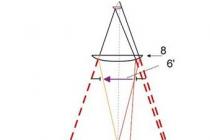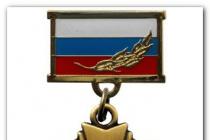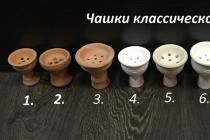No. 135 dated February 11, 2002 “On Licensing certain types activities”, as well as regulations on licensing each of the types of activities approved by the Government of the Russian Federation.
Under licensed understand a special permit to carry out a specific type of activity subject to the obligatory observance of licensing requirements and conditions, issued by the licensing authority to a legal entity or individual entrepreneur.
Licensing is a set of measures related to the issuance of licenses, reissuance of documents confirming the availability of licenses, suspension, renewal or termination of licenses, cancellation of licenses, control of licensing authorities over compliance by licensees in the implementation of licensed activities with the relevant license requirements and conditions, maintenance of registers of licenses.
The list of licensed activities is contained in paragraph 1 of Art. 17 federal law"On Licensing Certain Types of Activities". Activities not mentioned in this list do not need to be licensed, with the exception of the types of activities that are named in paragraph 2 of Art. 1 of the Federal Law "On Licensing Certain Types of Activities" (educational, notarial, exchange, insurance activities, activities of credit organizations; activities related to the protection of state secrets, etc.). These types of activities are subject to licensing in accordance with special legislation.
The legislation contains several licensing rules.
Firstly, the type of activity permitted by the license can be carried out by the licensee throughout Russia, regardless of whether it is issued by a federal executive body or executive body subject of the Russian Federation. However, in cases where the license is issued by a body of a subject of the Russian Federation, the implementation of the licensed type of activity on the territory of other subjects of the Russian Federation is possible only after the licensee notifies the licensing authorities of the relevant subjects of the Russian Federation. Notification is made by the licensee in writing later than the moment when he directly starts the implementation of the licensed activity. The notice contains the following information:
a) name, legal form and location - for a legal entity;
b) last name, first name, patronymic, place of residence, details of an identity document - for individual entrepreneurs;
c) licensed activity;
d) number, period of validity of the license and the name of the licensing authority that issued it;
e) an identification number the licensee's taxpayer;
f) the location of the licensed activity on the territory of the relevant subject of the Russian Federation;
g) the date of the proposed commencement of the licensed activity in the territory of the relevant subject of the Russian Federation.
Upon receipt of the notification, the licensing authority sends (gives) to the licensee a receipt for receiving the notification with a note on the date of receipt of the notification.
Secondly, a license grants the right to carry out the type of activity specified in it only to an economic entity that has received a license, that is, a license is not subject to transfer to another person, except in cases of succession during the transformation of a legal entity.
Thirdly, a license is issued for a certain term- not less than 5 years. Regulations on licensing specific types of activities may also provide for the perpetual validity of the license. The validity period of the license upon its expiration may be extended at the request of the licensee.
Licensing procedure
To obtain a license, the license applicant sends or submits to the appropriate licensing authority license application, which specifies:
- full and (if any) abbreviated name, including company name, and organizational and legal form of the legal entity, its location, addresses of the places of the licensed type of activity that the applicant intends to carry out, state registration number of the record on the creation of the legal entity and data of a document confirming the fact of entering information about a legal entity into a single State Register legal entities, - for a legal entity;
- surname, name and (if any) patronymic of the individual entrepreneur, place of his residence, addresses of the places where the licensed type of activity is carried out, which the applicant intends to carry out, details of the document proving his identity, the main state registration number of the entry on state registration an individual entrepreneur and the data of a document confirming the fact of entering information about an individual entrepreneur in the unified state register of individual entrepreneurs - for an individual entrepreneur;
- identification number of the taxpayer and data of the document on registration of the license applicant in the tax authority;
- licensed type of activity in accordance with which the license applicant intends to carry out.
Attached to the license application are the following: documentation:
- copies of constituent documents (with the presentation of originals if the accuracy of the copies is not certified by a notary) - for a legal entity;
- a document confirming the payment of the state fee for consideration by the licensing authority of an application for a license;
- copies of documents, the list of which is determined by the regulation on licensing a specific type of activity and which indicate that the license applicant has the ability to fulfill license requirements and conditions, including documents whose presence in the implementation of a licensed type of activity is provided for by federal laws (clause 1, article 9 of the Federal Law "On Licensing Certain Types of Activities").
The licensing authority is not entitled to require the applicant for a license to submit documents that are not provided for by law.
The application for a license and the documents attached to it on the day of receipt by the licensing authority are accepted according to the inventory, a copy of which, with a note on the date of receipt of the said application and documents, is sent (delivered) to the license applicant.
2. Making a decision to issue (or refuse to issue) a license. The licensing authority checks the completeness and reliability of information about the license applicant contained in the application and documents submitted by the license applicant, as well as checks the possibility of the license applicant fulfilling the license requirements and conditions. On the basis of the inspection carried out, the licensing authority makes a decision to grant or refuse to grant a license within a period not exceeding forty-five days from the date of receipt of the application for a license and the documents attached to it. The specified decision is formalized by the relevant act of the licensing authority.
Shorter terms for making a decision to grant or refuse to grant a license may be established by the regulations on licensing specific types of activities.
3. Notice to the license applicant of the decision granting or refusing to grant a license.
A notice of refusal to grant a license shall be sent (delivered) to the license applicant in writing, indicating the reasons for the refusal, including the details of the act of checking the possibility of the license applicant to fulfill the license requirements and conditions, if the reason for the refusal is the inability of the license applicant to comply specified requirements and conditions.
A notice of the grant of a license shall be sent (delivered) to the license applicant in writing, indicating the details of the bank account and the deadline for paying the license fee for granting the license.
Within three days after the license applicant submits a document confirming the payment of the state fee for granting a license, the licensing authority issues to the licensee free of charge document confirming the existence of a license, which specifies:
- name of the licensing authority;
- full and (if any) abbreviated name, including company name, and organizational and legal form of the legal entity, its location, addresses of the places where the licensed type of activity is carried out, the state registration number of the entry on the creation of the legal entity;
- surname, name and (if any) patronymic of the individual entrepreneur, his place of residence, addresses of the places where the licensed type of activity is carried out, details of the document proving his identity, the main state registration number of the entry on the state registration of the individual entrepreneur;
- licensed type of activity (indicating the work performed and the services provided);
- the term of the license;
- taxpayer identification number;
- license number;
- the date of the decision to grant the license.
Grounds and procedure for suspension and cancellation of a license
Licensing authorities have the right suspend validity of the license in the event that the licensing authorities detect repeated violations or gross violation the licensee of the license terms and conditions.
The licensing authority is obliged to set a period for the licensee to eliminate the violations that led to the suspension of the license, which may not exceed six months. If the licensee has not eliminated the violations within the prescribed period, the licensing authority is obliged to apply to the court with an application to cancel the license.
The licensee is obliged to notify the licensing authority in writing of the elimination of the violations that led to the suspension of the license. The licensing authority that has suspended the license shall make a decision to renew it and notify the licensee in writing within three days after receiving the relevant notice and verifying that the licensee has eliminated the violations that led to the suspension of the license.
The validity period of the license for the period of suspension of its validity is not extended.
Cancellation licenses are possible:
a) out of court. Licensing authorities may revoke a license without going to court if the licensee fails to pay the state fee for granting a license within three months.
b) in a judicial proceeding, that is, by a court decision on the basis of an application from the licensing authority in the event that the violation by the licensee of licensing requirements and conditions entailed damage to the rights, legitimate interests, health of citizens, defense and security of the state, cultural heritage of peoples Russian Federation and (or) in the event that the licensee has not eliminated the violations in connection with which the license was suspended within the prescribed period. Simultaneously with filing an application with the court, the licensing authority has the right to suspend the said license for a period until the court decision comes into force.
The decision to suspend the license, to cancel the license or to send an application for the cancellation of the license to the court shall be communicated by the licensing authority to the licensee in writing with a reasoned justification for such a decision no later than three days after its adoption.
The decision to suspend the validity of a license and to annul a license may be appealed in accordance with the procedure established by the legislation of the Russian Federation.
License loses its validity in case of liquidation of a legal entity or termination of its activities as a result of reorganization, with the exception of its transformation, or termination of the certificate of state registration.
To engage in certain types entrepreneurial activity organization or individual entrepreneur must obtain a license. In this article, we will look at the cases in which business licensing is required and what is needed to obtain a license.
Licensing of business activities since 2011
Since 2011, licensing of entrepreneurial activities has been regulated by the Federal Law of 04.05.2011 No. 99-FZ "On Licensing Certain Types of Activities". The list of activities for which licenses are issued in accordance with Law No. 99-FZ is contained in Art. 12. As of the date of this writing, the list includes 50 types of licensed activities. We will not list all types of activities, but we will indicate only the most popular of them among entrepreneurs:
- installation activities, maintenance and repair of fire safety equipment for buildings and structures;
- educational activities;
- medical activity;
And since May 1, 2015, it has been classified as a licensed type of activity.
On January 15, 2018, the Supreme Court of the Russian Federation issued a controversial ruling, according to which any is subject to licensing.
Licenses for the right to carry out the listed types of activities may be issued to organizations and individual entrepreneurs, with the exception of educational activities. Individual entrepreneurs will be able to obtain a license to carry out educational activities after the entry into force of the new federal law "On Education".
In addition, licensing of certain types of activities is regulated not by Law No. 99-FZ, but by other federal laws. In particular, this concerns the so-called "alcohol" licenses, that is, licenses for the production and circulation of ethyl alcohol, alcoholic and alcohol-containing products.
Requirements for a license applicant
In order to obtain a license, an organization or individual entrepreneur must meet a number of requirements. For each individual type of activity, these requirements are different and specified in the relevant regulation on licensing, which is approved by the Government of the Russian Federation. Among such requirements may be that the applicant has real estate objects, Vehicle, equipment; the presence of employees who professional education, qualifications and work experience. Size requirements may also apply. authorized capital the applicant, the absence of debt to third parties, etc. Full list The requirements for the applicant for a license for a certain type of activity are contained in the regulation on licensing this type of activity.
Validity of a license in time and space
Licenses, with some exceptions, in particular in the case of issuing temporary licenses in accordance with the law on education, are issued for an indefinite period, that is, indefinitely.
An individual entrepreneur or organization can carry out licensed activities from the day following the day the decision to issue a license was made.
Licensed activities can be carried out by them throughout the territory of Russia, as well as in other territories under the jurisdiction of the Russian Federation. At the same time, there is one nuance here.
As a rule, licenses are issued by federal authorities (FSB, Ministry of Emergency Situations, Ministry of Internal Affairs, etc.). However, in relation to certain types of activities, in particular medical and educational, the powers to issue licenses have been transferred to the level of the constituent entities of the Russian Federation. Accordingly, regional authorities are engaged in licensing business activities in these areas (for example, the Ministry of Health of a constituent entity of the Russian Federation issues licenses for medical activity). The question may arise whether a license issued by a health authority Krasnodar Territory, for example, to act, well, let's say, in the Samara region? Yes, it will work, but subject to the notification of the licensing authorities of the constituent entity of the Russian Federation (in our example, the authorities of the Samara region).
How to get a license?
To do this, you need to apply with an application to the appropriate licensing authority. The application must contain a number of information, including information about the license applicant. A number of documents must be attached to the application: copies of the organization certified by a notary; copies of documents determined by the relevant regulation on licensing business activities; description of attached documents.
Other documents, including those confirming the payment of the state fee, are prohibited from requiring from the license applicant.
Consideration of documents and verification of the information submitted by the applicant must be carried out within a period not exceeding 45 working days from the date of receipt of the application. For certain types of activities, this period may be reduced. Based on the results of consideration of the documents, the licensing authority makes a decision to grant a license or to refuse, of which the applicant is notified. The decision to refuse, as well as the inaction of the licensing authority, the applicant can appeal to the court.
These are the basic rules for licensing business activities. In the following articles, we will consider the requirements and procedure for licensing already in relation to specific types of activities.
In conclusion, do not forget that for the illegal implementation of entrepreneurial activities without a license or in violation of license requirements, administrative liability is established (Article 14.1 of the Code of Administrative Offenses of the Russian Federation). If, as a result of such activities, damage is caused or income is received on a large scale, the entrepreneur may be held criminally liable under Art. 171 of the Criminal Code of the Russian Federation.
Coffee break: the mystery of Leo Tolstoy
Write your answers below.

Licensing - restriction of the right to entrepreneurial activity: the obligation not to carry out entrepreneurial activity (general prohibition). This prohibition applies to all entrepreneurs who do not have an appropriate license to carry out a type of activity licensed in accordance with the law. The legal meaning of the license lies in the fact that it legalizes entrepreneurial activity in the relevant area. License - a special permit to carry out a specific type of activity subject to the obligatory observance of licensing requirements and conditions, issued by the licensing authority to a legal entity or individual entrepreneur.
A license is provided for each type of activity. The type of activity for which a license has been granted can be carried out only by a legal entity or individual entrepreneur who has received a license. The term of the license cannot be less than five years. The validity period of the license upon its expiration may be extended at the request of the licensee. Extension of the license is carried out in the order of reissuing a document confirming the existence of a license. Regulations on licensing specific types of activities may provide for the perpetual validity of the license. To obtain a license, an application for a license is written, which indicates: the full and abbreviated name, its location, the addresses of the places where the licensed type of activity is carried out, which the applicant intends to carry out; surname, name and patronymic of an individual entrepreneur, his place of residence, addresses of places where the licensed type of activity is carried out; identification number of the taxpayer and data of the document on registration with the tax authority; the licensed type of activity that it intends to carry out. The application for granting a license shall be accompanied by: copies of constituent documents - for a legal entity; a document confirming the payment of the state fee for consideration by the licensing authority of an application for a license.
Types: development of weapons and military equipment; production of weapons and military equipment; repair of weapons and military equipment; disposal of weapons and military equipment; arms trade and military equipment; production of weapons and essential parts of firearms; production of cartridges for weapons and components of cartridges; trade in weapons and essential parts of firearms; production of medical equipment; transportation of passengers by sea; transportation of goods by sea; transportation by domestic water transport passengers; transportation by inland water transport of goods; transportation by air of passengers; transportation of goods by air; tour operator activity; travel agency activity.
Licensing of tour operator activities is carried out by the Ministry of Economic Development and Trade of the Russian Federation. The validity of the license to carry out tour operator activities is 5 years. Licensing requirements and conditions for the implementation of tour operator activities are: the presence in the staff of the tour operator - a legal entity of at least 7 employees engaged in tour operator activities; the presence of a tour operator with higher, secondary specialized or additional education in the field of tourism or work experience in tourism for at least 5 years, as well as the presence of the head of the tour operator (head structural unit carrying out tour operator activities) higher, secondary special or additional education and at least 5 years of work experience in the field of tourism; availability of a certificate of compliance of tourist services with safety requirements; providing the client with comprehensive information about the mode of operation of the tour operator, its location, the availability of a license, certificates for services subject to mandatory certification, last names, first names and patronymics of officials responsible for conducting the relevant areas of tourism activities. Licensing of the production of medical equipment is carried out by the Ministry of Industry, Science and Technology of the Russian Federation. Licensing requirements and conditions for the production of medical equipment are: compliance with the requirements of the legislation of the Russian Federation, state standards and regulatory technical documents for the production and quality control of medical equipment; obligatory state registration in the Russian Federation in accordance with the established procedure of medical equipment declared by the applicant for production; the licensee has buildings, premises and technological equipment necessary for the implementation of the licensed activity; correspondence industrial premises and equipment to technical standards and requirements for premises and equipment used in the production of medical equipment; the licensee's employees responsible for the production and quality of medical equipment have higher or secondary specialized technical or medical education and work experience in the relevant specialty for at least 3 years. The license for the production of medical equipment is granted for 5 years. The validity period of a license upon its expiration may be extended at the request of the licensee in the manner established for reissuing a license.
Legal basis investment and innovation activities. Legal regulation foreign investment.
Investments - cash, securities, other property, including property rights, other rights having a monetary value, invested in objects of entrepreneurial and (or) other activities in order to make a profit and (or) achieve another beneficial effect.
Investment activity - investment and implementation of practical actions in order to make a profit and (or) achieve another beneficial effect. Innovation is the activity of creating and mastering new knowledge in order to introduce them into the production process of goods, works and services. The main goal of innovation is profitability. Properties: scientific novelty, industrial applicability, commercial feasibility. The absence of any of them radically changes the nature of this phenomenon. Portfolio investments are investments in stocks, bonds, other securities, shares in business companies and partnerships. Direct is an investment in the production process.
Foreign investment - the investment of foreign capital in the object of entrepreneurial activity in the territory of the Russian Federation in the form of objects civil rights belonging to a foreign investor, if such objects of civil rights are not withdrawn from circulation or are not limited in circulation in the Russian Federation in accordance with federal laws, including money, securities (in foreign currency and the currency of the Russian Federation), other property, property rights having a monetary value of exclusive rights to the results of intellectual activity (intellectual property), as well as services and information.
A foreign investor has the right to make investments in the territory of the Russian Federation in any form not prohibited by the legislation of the Russian Federation. A foreign investor who initially imported property and information into the territory of the Russian Federation in documentary form or in the form of an entry on electronic media as a foreign investment, has the right to unhindered (without quotas, licensing and application of other measures of non-tariff regulation of foreign trade activities to it) export of the said property and information outside the Russian Federation. A foreign investor has the right to purchase shares and other securities of Russian commercial organizations and government securities in accordance with the legislation of the Russian Federation on securities. A foreign investor is obliged to comply with the antimonopoly legislation of the Russian Federation and prevent unfair competition.
In our country, novice entrepreneurs have the right to freely choose the scope of their future activities. However, from the authorities state power Citizens acting in such a capacity are subject to a number of requirements. For the implementation of certain types of entrepreneurship, a special permit is required from the authorized bodies. This applies to those areas that are directly related to the risk to life and health of people. It is worth dwelling in more detail on what the licensing procedure is, for what types of activities it is mandatory and what is the procedure for obtaining this document.
Licensing of certain types of entrepreneurial activity
Certain types of business activities in our country are subject to special licensing. This means that an entrepreneur has the right to carry out such activities only after obtaining a permit (license) issued by authorized authorities.
A license is a special document that gives the applicant the right to engage in a specific type of activity.
From the foregoing, we can conclude that licensing is the provision of licenses to business entities. However, this is not the only function of the licensing authorities.
The sale of alcohol is one of the activities subject to mandatory licensing.
Licensing is also associated with such actions:
- re-issuance of documents confirming the availability of licenses;
- suspension of licenses in case of violation by entrepreneurs of license requirements and conditions;
- renewal or termination of licenses;
- cancellation of licenses;
- control of licensing authorities over compliance by entrepreneurs with relevant licensing requirements and conditions;
- maintenance of registers of licenses;
- providing interested persons information from license registers and other licensing information.
Licensing of certain types of activities is carried out in order to prevent damage to the rights, legitimate interests, life and health of citizens, environment, objects of cultural heritage (monuments of history and culture) of the peoples of the Russian Federation, defense and security of the state.
The procedure for licensing certain types of activities is regulated by a number of legal acts.
Table: main documents regulating licensing in the Russian Federation
| Name of the normative act | Characteristic |
| Civil Code of the Russian Federation. | Contains a provision according to which a legal entity can engage in certain types of activities only on the basis of a license (part 3, paragraph 1, article 49). This norm of the Civil Code of the Russian Federation is predetermined by the provisions of the Constitution of the Russian Federation (Articles 8, 34, Part 3 of Article 55) and is fundamental in the system of legal support for licensing business activities. |
| Federal Law of August 8, 2001 No. 128-FZ “On Licensing Certain Types of Activities”. | The main legislative act regulating relations arising between public authorities and business entities in connection with the licensing of certain types of activities. |
| Decree of the Government of the Russian Federation of April 16, 2012 No. 291 "On licensing medical activities" | Regulates the granting of a license for medical activity. |
| The ordinance and federal laws govern pharmaceutical activities. |
| Federal Law "On banks and banking» No. 395–1 of 02.12.1990 (current edition of 04.10.2014). | According to this law, a license to carry out banking operations credit institution issued central bank RF after its state registration. |
| Federal Law of November 22, 1995 No. 171-FZ “On state regulation production and turnover of ethyl alcohol, alcoholic and alcohol-containing products and on limiting the consumption (drinking) of alcoholic products” (as amended and supplemented on November 2, 2013). | Provides that licensing is subject to activities related to the production and circulation of ethyl alcohol, alcoholic and alcohol-containing products, with the exception of the purchase of ethyl alcohol, alcoholic and alcohol-containing products (in order to use them as raw materials or auxiliary material in the production of alcoholic, alcohol-containing and other products or for technical or other purposes not related to the production of these products) and the retail sale of alcohol-containing products, which are clearly listed in Art. 18. The said Law defines the procedure for issuing licenses and establishes that the documents submitted by the organization to the licensing authority for obtaining a license are registered and subject to examination by the licensing authority. |
| Law of the Russian Federation of November 27, 1997 No. 4015-1 “On the organization of insurance business in the Russian Federation” (as amended and supplemented on July 21, 2014). | Regulates the issues of licensing the activities of subjects of the insurance business. |
The list of documents regulating licensing in our country is not limited to the one presented above. As a rule, each type of activity has its own set of legal acts, which the entrepreneur is guided by.
Business Licensing Bodies
The issuance of licenses is carried out by the executive authorities of the constituent entities of Russia or local governments responsible for the area of activity subject to licensing.
Table: list of licensing authorities
Rosselkhoznadzor and Roszdravnadzor are responsible for issuing licenses in the field of medical and pharmaceutical activities.
Types of activities subject to licensing
An exhaustive list of such activities is presented. Consider the most common types of licensed business activities.
Table: list of activities for which a license is required
| Kind of activity | OKVED codes |
| Production, sale and use of pharmaceuticals and medical equipment, medical care | 46.46, 47.73, 21.20 |
| Educational and educational activities | 85.1–85.42.9 |
| Insurance and customs business | 69.10, 65 |
| Private security companies and detective agencies | 80.1–84.24, 70.90, 80.30 |
| Communication services | 61.10 |
| Manufacture and sale of alcohol | 51.34 |
| Business related to the use of natural resources | 01–09.90 |
| Rail and international cargo transportation | 60.10, 63 |
| Architectural and engineering construction, restoration works | 71.1–71.20.9 |
| Business in the field of international cooperation (travel agencies, tour operators) | 79.11–79.90.32 |
One of the most common activities subject to licensing is the provision of educational services.
Video: Licensing all types of waste management activities
The procedure for obtaining an IP license
Obtaining a license for a certain type of entrepreneurial activity requires the applicant to meet certain requirements. Depending on the status of a legal entity or individual entrepreneur, as well as the type of its entrepreneurial activity, the rules for obtaining may vary.
In most licensing cases, the license applicant must meet the following specific requirement or set of requirements. For example:
- own real estate, vehicles, equipment, etc.;
- maintain an active working headquarters;
- have a professional education, work experience, etc.;
- have capital.
It should be taken into account that some activities are prohibited for individual entrepreneurship. This applies to:
- banking operations when creating a bank;
- activities for the production and circulation of ethyl alcohol, alcoholic and alcohol-containing products;
- works in the field of the use of atomic energy;
- activities for the organization and conduct of gambling in bookmakers and sweepstakes.
If a citizen is registered as an individual entrepreneur and meets the requirements put forward, he can proceed to obtain a license. The process can be schematically represented as an instruction.
Application for a license
At the first stage, the entrepreneur writes an application with a request to provide him with a license for the type of activity he has chosen. Sample application for a license to retail sale alcohol.
In the application, the IP indicates data of this kind:
- personal data of the entrepreneur (passport data);
- contact information (phone number, email address);
- main state registration number (OGRIP);
- taxpayer identification number (TIN);
- details of the document confirming the fact of payment of the state duty for granting a license;
- type of activity indicating the work performed, services.
The application for a license must indicate the identification number of the taxpayer
Collection of documents
- passports;
- photocopies of the certificate of state registration of IP;
- a notarized copy of the TIN or the original TIN and an uncertified copy;
- license applications;
- data on the qualifications of employees (if required).
It should be borne in mind that the list of documents can be expanded. Therefore, it is better to clarify in advance which documents are required in this case.
The certificate of state registration of an individual entrepreneur is one of the documents provided by a citizen to the licensing authority
Payment of state duty
Then the individual entrepreneur pays the state fee for consideration by the licensing authority of his application and attaches a receipt of payment to the package of documents. The amount of the state duty will depend on the specific type of activity. As a rule, the state duty is charged in the amount of 7500 rubles, but in some cases the license is more expensive.
Submission of documents to the licensing authority
All documentation is accepted by the licensing authority according to the inventory, the copies of which are marked with the date of acceptance.
A copy of the inventory with a mark on the date of receipt is handed over to the applicant or transferred to him in the manner in which the documents were received
Within three working days, the licensing authority decides whether to consider the application or return it if the documents do not meet the requirements (for example, they are not provided in full). If a decision is made to return the application, the applicant will be notified of the need to correct violations within 30 days.
Notification of the need to eliminate the identified violations is sent to the entrepreneur by registered mail or in the form electronic document
Receipt of the finished document
After the application for a license is accepted, a decision is made to issue a license within 45 working days. The final decision is issued by order of the licensing authority. The license will be issued within 3 working days after its signing and registration.
The decision to issue the required document is made only if the licensee meets all the requirements put forward.
In case of refusal, the entrepreneur has the right to appeal such a decision in court.
It should be borne in mind that the license for the right to conduct certain activity issued to a specific IP. The law does not provide for the right to transfer it to another person.
In case of loss of the form, the businessman has the right to apply to the local administrative authority with a request for a duplicate.
Comprehensive business license agreement: concept, meaning, legal features
A complex business agreement (franchising) is the provision by one party (the company selling its franchise) to the other party (the franchise buyer) of a set of rights.
Such rights are granted for a fee. They include the right to use the trade name of the copyright holder, trade secrets, as well as other objects intellectual property(trademark, service mark, etc.). The franchise agreement must also be registered. It is registered in the same body where the owner of exclusive rights is registered.
The right holder of a complex of exclusive rights is obliged:
- ensure the transfer to the user of the entire range of exclusive rights under the contract, instruct the user on the implementation of rights, provide other information necessary for the implementation of these rights;
- ensure registration of the franchise agreement;
- provide the user with ongoing assistance in the use of the exclusive rights transferred under the contract, including assistance in training and advanced training of personnel;
- control the quality of goods produced, work performed and services provided by the user on the basis of a franchise agreement.
The user of such rights is obliged:
- use the complex of exclusive rights received by him in strict accordance with the terms of the contract;
- pay the right holder the remuneration stipulated by the contract;
- produce goods, perform work, provide services of the same reliability and similar quality, as everything is done directly by the copyright holder;
- provide buyers (customers) with all the same services that would be expected directly from the right holder;
- not to allow the transfer of the received objects of exclusive rights to other persons without the consent of the copyright holder.
The contract in question is terminated as a result of the expiration of its validity period. Early termination is also possible by mutual agreement of the parties.
Integrated business license terminated unilaterally in the following cases:
- non-fulfillment by one of the parties of the terms of the contract;
- termination of the rights belonging to the right holder to the registered name, trademark, etc.;
- changes in the company name and other exclusive rights belonging to the copyright holder (in this case, the user's unilateral refusal to execute the contract applies);
- conclusion of an agreement without specifying a period (termination of the agreement in such a situation may follow from the counterparty at any time);
- non-fulfillment by the right holder of his obligations to update technologies, train personnel, etc.;
- non-compliance with the rules for the preservation of trade secrets, the requirements for the protection of the intellectual property of the copyright holder;
- untimely payment of remuneration by the user;
- declaring the copyright holder or user bankrupt.
Validity of the license in time and territory
In most cases, a license is issued for an unlimited period, i.e., it is an indefinite document. However, in some cases, there is a restriction on the validity of licenses.
Examples of validity limits by type of activity:
- for audit activities - 5 years;
- on retail alcoholic products- from 1 to 5 years;
- for work with state secrets - up to 5 years at the request of the applicant;
- for the provision of communication services - from 3 to 25 years;
- for passenger transportation within the Russian Federation - 5 years (at the first application);
- to carry and store weapons - 5 years.
The validity of the license upon its expiration may be extended at the request of the entrepreneur.
An individual entrepreneur has the right to start carrying out his activities from the next day after the approval of the issuance of a license for him. Entrepreneurial activity can be carried out throughout Russia, regardless of the place of its issue, as well as in places of jurisdiction of the Russian Federation.
It should be borne in mind that the activities covered by licensing are checked by regulatory authorities.
Depending on the type of licenses state structures conduct IP checks with varying intensity. Checks are based on the appeal of individuals or legal entities on the facts of possible violations in the work of a businessman. Based on the materials of the audit, an appropriate act is drawn up.
If within 1 calendar year IP receives more than two negative reviews according to the results of the check, the local administrative body has the right to cancel the issued license.
The license is suspended by the licensing authority in the following cases:
- violation of licensing requirements and conditions that create a direct threat to the life or health of citizens;
- non-compliance by the entrepreneur with the instructions of the licensing authority to eliminate the identified violations;
- failure to submit an application for reissuing a license or issuing a duplicate license to replace the lost one within the prescribed period.
Information on the suspension of a license shall be entered in the register of licenses.
The license is renewed after the entrepreneur fulfills all the instructions by decision of the licensing authority from the day:
- following the day of expiration of the term for the execution of the newly issued order;
- following the day of signing the act of verification, establishing the fact of early execution of the newly issued order.
Information about the renewal of a license is also entered in the register of licenses. If the prescribed guidelines have not been met, authorized body makes a decision to revoke the license.
Responsibility for carrying out activities without a license
For carrying out activities without a license, the legislation provides different kinds responsibility:
- penalties (for citizens in the amount of two thousand to two thousand five hundred rubles);
- confiscation of illegally obtained income;
- deprivation of the right to practice certain types activities;
- participation in public works for a period of 180 to 240 hours;
- arrest for a period of 4 to 6 months;
- imprisonment for up to 3 years.
Entrepreneurs for lack of licenses may be subject not only to administrative liability, but also to criminal
Tax implications should also be taken into account. The application of tax benefits is impossible if there is no license to conduct the type of activity subject to licensing.
If we talk about liability, an example is the judicial act of August 1, 2006 in case No. 3–2/06, according to which the Arkhangelsk Regional public organization"Spiritual revival of the northerners" was subject to liquidation. This organization, using methods of psychological and psychotherapeutic influence during lectures and meditations, carried out medical activities without having an appropriate license. Thus, Art. 17 of the Federal Law "On Licensing Certain Types of Activities". Conducting mass meditations for the purpose of physical and spiritual recovery is a violation of Part 6 of Art. 57 "Fundamentals of the legislation of the Russian Federation on the protection of the health of citizens", which prohibits mass healing sessions. These violations of the law are gross, which, in accordance with Art. 44 Federal Law "On public associations"and paragraph 2, part 2 of Art. 61 of the Civil Code of the Russian Federation serve as the basis for the liquidation of the organization.
The licensing procedure combines a set of actions related to the provision, suspension, renewal, cancellation of licenses and re-issuance of documents confirming their existence. This is a type of state control aimed at protecting the rights and interests of citizens, their health and morality, as well as national security. For the implementation of certain types of entrepreneurship, obtaining a permit is considered mandatory, while the absence of a license leads to administrative and criminal liability.
An organization or individual entrepreneur can work in Russia only after state registration with the tax authority.
In the process of registering a new business, it should be borne in mind that some types of work and services require a special permit - a license. How it is formalized and what types of business activities require licensing, we will describe further.
What works and services need to be licensed?
A license is required for such activities that may damage the legitimate interests and rights, life and health of the population of the Russian Federation, as well as the defense and security of the country, its ecology and cultural heritage.
The list of works and services for which a permit is required is quite impressive and changes frequently. It is contained in Art. 12 of the Federal Law of May 4, 2011 No. 99-FZ “On Licensing Certain Types of Activities”:
- production of medicines;
- transportation of passengers and goods by water, rail or air transport;
- passengers by motor transport with a capacity of more than 8 people;
- private security and detective (detective) activities;
- communication services, television and radio broadcasting;
This is an exhaustive list of licensed activities. Works and services not included in this list do not require a special permit.
The law clearly defines the types of activities that require a license.
Which persons are allowed to engage in certain types of activities specified in Law 99-FZ?
Organizations of various legal form And individual entrepreneurs. Ordinary citizens do not have the right to perform work and provide services listed in the law. Therefore, without registering an individual entrepreneur or legal entity, a license cannot be issued.
Only individual entrepreneurs and organizations can obtain a license.
Requirements for license applicants
Organizations and individual entrepreneurs wishing to obtain a license for any type of activity must meet certain requirements. They are listed in Art. 8 of Law No. 99-FZ:
- real estate, equipment and technical means required to perform the declared activities (owned or leased);
- availability of full-time employees suitable education, qualifications and work experience in the specialty;
- availability of a production control system at the enterprise;
- correspondence organizational form business requirements of the law. This rule does not apply to all jobs. An example is the alcohol production activity, which can only be carried out by organizations.
The list of requirements can be expanded, since each type of work and service has its own legislative provision that describes the nuances of obtaining a license.
Each licensed type of activity has its own list of requirements.
The procedure for licensing certain types of entrepreneurial activity
The licensing procedure can be divided into three main stages:
- Collection and submission of documents to the licensing authority
To find out where to apply for a license in each specific case, you need to look at Decree of the Government of the Russian Federation of November 21, 2011 No. 957 “On the organization of licensing certain types of activities”. It lists all instances.
- Consideration of the application and making a decision
After transferring the package of documents to the licensing authority, its employees begin to verify the information. The term for consideration of documents depends on the type of license and is usually 45-60 days. If everything complies with the law, a decision is made to issue a license. In the presence of violations, the issuance of a license is denied.
- Applicant Notification
In case of a positive decision, a notice is sent to the applicant indicating the details of the account and the deadline for paying the license fee.
A negative answer is also writing sent to the applicant. The document indicates the reasons for the refusal and links to relevant legal provisions.
The licensing authority is obliged to notify you in writing of the decision made.
The period of validity of a permit directly depends on the type of activity for which it is issued. The minimum period is 3 years, unless the applicant has specified a shorter period. The license is renewed at the request of its owner. The permit is valid throughout the territory of the Russian Federation.
Documents for licensing certain types of business activities
You will need to collect and submit the following papers to the licensing authority:
- license application;
- constituent documents of the organization or certificate of registration of individual entrepreneurs (copies);
- TIN (copy);
- documents confirming your compliance with the requirements of Law No. 99-FZ;
- receipt of payment of state duty;
- description of submitted documents;
- power of attorney for a representative, if another person acts on your behalf.
The list of documents depends on the type of licensed activity and can be extended.
Documents can be submitted in three ways:
- bring it to the licensing authority in person;
- send by registered mail with a description of the attachment and a return receipt;
- via the Internet - in the format of an electronic document signed with an EDS.
If the employees of the licensing authority have identified errors in your application, or you have not attached all the papers, you will be notified of this within 3 days from the date of submission of the documents. It is necessary to eliminate the violation within a month. Remember that with each re-submission of documents, you will have to pay a new state fee.
The amount of the state duty for granting a license is 7,500 rubles.
Reasons for refusal to issue a license
The grounds for refusal to issue a license may be:
- the information specified in the applicant's documents is not true;
- the candidate does not meet the requirements of Law No. 99-FZ;
- the previously issued license was revoked (concerns the types of activities listed in paragraph 38 of article 12 of Law No. 99-FZ).
Wrongful refusal can be challenged in court. The same can be done in case of inaction of the licensing authority and delaying the consideration of the application.
Refusal to issue a license is a reason to go to court.
Responsibility for carrying out entrepreneurial activities without a license
Violators are subject to administrative, tax or criminal sanctions:
- Administrative responsibility
Carrying out business activities without permission threatens liability under Art. 14.1 of the Code of Administrative Offenses of the Russian Federation. The legal entity will have to pay a fine of up to 50 thousand rubles, officials- up to 5 thousand rubles, for citizens - up to 2.5 thousand rubles. You may also have manufactured products, tools of production and raw materials confiscated.
- Tax Liability
Some types of activities are exempt from taxation (Article 149 of the Tax Code of the Russian Federation). If you are engaged in them without a license, you will have to pay income tax for all operations.
- Criminal liability
If work without a license caused major damage to citizens, organizations or the state, or brought you a large income, the punishment will follow under Art. 171 of the Criminal Code of the Russian Federation. The minimum sanction is a fine of up to 300 thousand rubles, the maximum is imprisonment for up to 5 years.
Working without a license is punishable by fines and sometimes jail time.
Registration of a license for any type of entrepreneurial activity is a complex and time-consuming process that requires deep knowledge in the field of legislation. For a successful and quick passage of the procedure, it is better to seek the help of a lawyer.














